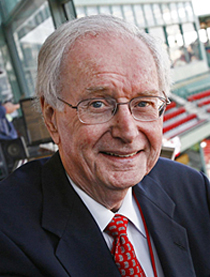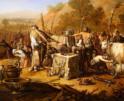
Culture
The Baseball Writers of America have chosen the MVPs for the past 91 years. Sometimes the vote has been extremely close and even controversial.

Flavin
Those who know about such things -- or, at least should know about them -- predict that the contest for Most Valuable Player in the American League this year should come down to a two-man contest between New York Yankees outfielder Aaron Judge and Los Angeles Angels pitcher/designated hitter Shohei Ohtani. Judge is having a career year and, until recently, was on pace to challenge Babe Ruth and Roger Maris as a member of the 60-home-runs-a-year club. If he has a hot streak, he could get back on track. Ohtani, the league's reigning MVP, has solidified his ranking as an elite pitcher and, while his home run numbers are down a bit, he remains a feared slugger.
There are even those who rank Ohtani as possibly the most valuable player in baseball history because of his dominance as both a pitcher and hitter. The player to whom he is most often compared is none other than Babe Ruth himself, but Ruth first achieved greatness as a pitcher with the Red Sox, then as a hitter with the Yankees. The year 1919, his last season with the Red Sox, was his transition year. He started only 15 games and spent the rest of his time in the outfield. He had a nine to four won/lost record and a 2.97 ERA and hit a then-record 29 home runs. In 1920, as a full-time outfielder with the Yankees, he slugged an unbelievable 54 homers. He changed baseball forever.
Ruth, of course, did not have the luxury of being a DH, which is what Ohtani is when not pitching. It is doubtful that anyone's legs would remain fresh enough and strong enough to allow him to be both a full-time starter and a full-time position player.
There is no question that Ruth was the better hitter of the two. His lifetime batting average of .342 is almost 80 points higher than Ohtani's and, while Ohtani's home run numbers are impressive (he hit 46 in 2021), they don't compare to Ruth's -- yet. A case can be made, though, that they are both the best pitchers of their day.
It should be great fun to see how the MVP vote plays out this year. Ohtani was the unanimous winner in 2021 (all 30 of the baseball writers who voted chose him number one) but, if things remain the same, Judge is likely to draw plenty of support this time around.
Ohtani, who was nine -- two with an ERA of 3.18 last year, is already nine -- four in 2022 (including his last six starts in a row) with an ERA of just 2.38.
The Baseball Writers of America have chosen the MVPs for the past 91 years. Sometimes the vote has been extremely close and even controversial. In 1979, Keith Hernandez of the St. Louis Cardinals and Willie Stargell of the Pittsburgh Pirates finished in a tie and were named co-MVPs of the National League.
In 1947, Joe DiMaggio edged Ted Williams by a single vote, 202 to 201, for the American League MVP title even though Williams had won the Triple Crown that year. The vote turned controversial when it became public that one writer had failed to include Williams in any ballot for the award. If he (the writer) had given Ted even a 10th place vote, Williams would have won the contest. Williams was convinced the guilty writer was one of the Boston contingent with whom he was often at war, but an investigation concluded that he was from an unidentified mid-western city. No one has ever admitted to the crime.
It was the second time Ted had won baseball's Triple Crown (batting average, home runs, and RBI) but failed to be named MVP. The other time was 1942, when Joe Gordon, the Yankees second baseman, was chosen over him. It was thought that Johnny Pesky, the Red Sox rookie shortstop, who finished third in the voting that year, drew enough votes away from Williams to cost Ted the title.
Williams was named American League MVP in 1946 and again in 1949, when he came within .0002 of winning the batting championship and a third Triple Crown.
In the more than 90 years that the baseball writers have chosen the Most Valuable Player, the only other time that a Triple Crown winner was not chosen was 1934, when Lou Gehrig led the league by batting .363, hitting 49 home runs, and amassing 165 RBI, but he lost to Mickey Cochrane of the Detroit Tigers for MVP. Unlike the controversial Williams, who was disliked by many writers, Gehrig was a great favorite. But he actually finished fifth in the voting that year; he was behind Cochrane, Charlie Gehringer of Detroit, pitcher Lefty Gomez of the Yankees, and pitcher Schoolboy Rowe, also of the Tigers.
Cochrane, considered to be the greatest catcher of the age, had been traded to the Tigers that year by the Philadelphia Athletics and had been named its player/manager. His numbers were nowhere near what Gehrig's had been, but he had led the team to an unexpected pennant and the best won and lost percentage in its history. There was no Manager of the Year Award until 1983, so that added to his MVP votes, and no one complained when he won.
Barry Bonds holds the record for most MVPs, having been chosen for the award seven times, three times early in his career and four during the age of steroids in the early 2000s. No one else has won the award more than three times. Other great players, such as Derek Jeter, David Ortiz, and Carlton Fisk, have never won. But Shohei Ohtani, if he lasts long enough (and that's a big IF), might just challenge Bonds. He is unique in the long history of baseball. One can just imagine what the size of his contract will be by the time he's eligible for free agency.
- Dick Flavin is a New York Times bestselling author; the Boston Red Sox "Poet Laureate" and The Pilot's recently minted Sports' columnist.
Recent articles in the Culture & Events section
-
Scripture Reflection for April 28, 2024, Fifth Sunday of EasterDeacon Greg Kandra
-
Boston and the nation respond to the San Francisco Earthquake of 1906Thomas Lester
-
See you in the storyLaura Kelly Fanucci
-
'Dignitas' and the mediaRussell Shaw
-
Scripture Reflection for April 14, 2024, Third Sunday of EasterDeacon Greg Kandra


















